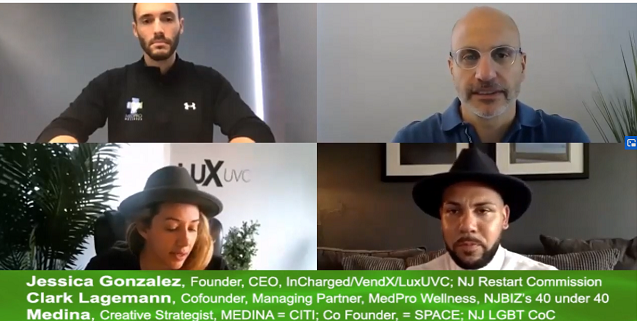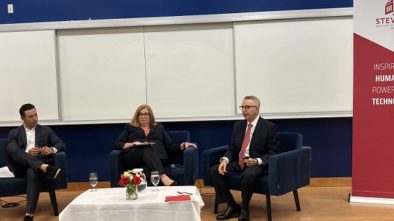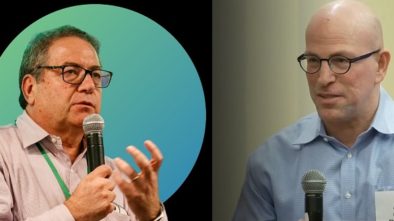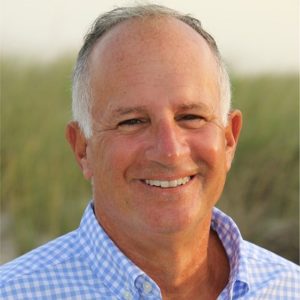Three New Jersey Entrepreneurs Discuss How They Overcame COVID-19 Challenges
During the COVID-19 pandemic, many members of the New Jersey tech ecosystem, like businesses everywhere, have used ingenuity and agility to navigate the uncertainty brought on by mandated closings, social distancing and the cancellation of in-person events.
In August, James Barrood hosted a “leadership chat” called “How 3 Businesses Are Managing COVID-19 Challenges.” The chat featured entrepreneurs Jessica Gonzalez, Clark Lagemann and MEDINA, all fixtures in the New Jersey startup community. The complete video of the event can be found here.
From InCharged to LUXUVC
Gonzalez’s company, InCharged (Newark), originally focused on the in-person event business, which was decimated by the pandemic. In response, she completely changed her business model, developing contactless-vending, ultraviolet and other disinfecting machines, which she offers at the LuxUVC website.
“Pre-COVID, we provided brandable event technology for some of the world’s biggest brands, and also had an experiential vending machine” that allowed users to engage with a vending machine and “perform an action in exchange for a tangible, physical prize.” After COVID-19, Gonzalez changed her business into a “disinfectant product provider” aimed at small janitorial companies throughout the U.S.
As soon as she realized the impact of the pandemic on her business, Gonzalez felt she that had to furlough some of her staff, with the intention of bringing them back later. She went down to her basement and started building a proof of concept for a PPE (personal protective equipment) touchless vending machine. She said that she had physically visited Home Depot multiple times each day, just trying to get a proof of concept built.
Gonzalez changed her website and pivoted from offering event-related technology and vending machines to offering touchless vending machines that dispense PPE. All of the interactions with the PPE machines are done via smartphone.
She then secured other products to help with disinfecting offices. Gonzalez noted that it wasn’t easy, but she just had to put her company “in God’s hands” because there were no events going on. She concentrated on doing what she had to do to keep the new business operating.
She added that the pivot has been successful. “I’ve never been more busy in my life than I am now,” she said. Also, she is getting satisfaction from being able to help people, which is something she didn’t have so much from her former business.
MedPro Wellness Doubles Down on Employees
Lagemann mentioned that his 7-year-old health-and-wellness technology company, MedPro Wellness (Cranford), helps people reduce their risk for long-term conditions and have healthier lives. While his company didn’t have to pivot much, it’s now clearly focused on delivering care and engagement remotely.
In the midst of a pandemic and civil unrest, Lagemann doubled down on his employees. “We have much more transparent communication than we ever had before. … We do a lot of Zoom meetings with our team just to ensure that they know we hear them, and we know that they’re going through difficult times. Just enabling them to have that open forum has been really useful for us as we’re transitioning into the new normal.”
Lagemann said that his company had had some difficult times at the beginning of COVID, which resulted in some furloughs, but he responded to this with the goal of creating “opportunities that are long-term, to be able to get the team back and together as quickly as possible.” And he is in the process of accomplishing that goal, he said.
=SPACE Finds Its Digital Strengths
MEDINA, who owns =SPACE, a sharespace centered on multicultural business owners in Newark, noted that the work he had done prior to the pandemic helped community members celebrate their differences while starting up their businesses. The other side of his work is his career as a digital strategist for brands and publications at his company MEDINA=CITI (Newark).
While =SPACE is a physically shared workspace, “the way that the team consistently activated was through digital platforms,” he told Barrood. “So, when we had to shut our doors like everyone else, we did what was right and responsible. We took three days, under the leadership of CEO Akosua Ayim, and we created a plan to go 100 percent digital. We tripled down on converting almost every aspect of our culture into a digital platform.”
=SPACE is now attending to its members in a more holistic way, in a way “that a lot of founders of color, and especially women ventures, have to be supported,” said MEDINA. The company now offers online events featuring everything from yoga classes to discussions on acknowledging and dealing with crisis, “because the more we centered around our founders, the more they were able to pivot their businesses and not be overwhelmed by the pandemic that we’re all facing.”
As =SPACE became even more fluent in the creation of digital events, MEDINA found that it was in great demand by large companies and partnerships that wanted to know how to hold events that were completely virtual. He said that he had led strategy for a virtual job summit in early July that included Newark Alliance, the City of Newark, and the Newark-based Per Scholas and Ironbound Community Corporation. One of the highlights was being able to link job seekers with one of the 15 participating brands. “We used several platforms to accomplish that,” he said.
Lessons Learned
Barrood asked the entrepreneurs about the biggest lesson that they had learned during this trying time.
Gonzalez said that the lesson she had learned was not to be scared to leave her existing business and do something different. “Like a lot of people, I was complacent with my old business. You know, you go in every day, you do the same thing. You know your revenue and whatnot. Being thrown into a completely new industry … was scary, but it helped me be able to bring all my employees back and hire even more people now because I basically just went to something completely different because it was something that’s needed.”
Lagemann noted that “he actually drank his own Kool-Aid,” and it worked, as his business had been focused on health and wellness, and especially on its core concept of stress resilience. Everything you put into your body and your activity level “fuels your mind and your passion for success.” If you create stress resilience, “you can thrive in these environments that are very difficult, very challenging. A lot of it is around a mindset, an activity level and being able to focus on things that are incredibly important.”
Finding Programs for Financial Support
Responding to a question from Barrood, the entrepreneurs discussed how they had gone about finding financial support for their businesses, especially at the beginning of the pandemic. Gonzalez took advantage of the federal Paycheck Protection Program (PPP) and a grant from the New Jersey Economic Development Authority (NJEDA). When the pandemic struck, “I scoured the web for as many grants and opportunities for revenue to be able to pay my people. That helped me significantly. Now that we are doing well, I want to give that all back.”
She also praised the support network she developed after being selected to participate in the New Jersey Governor’s Restart and Recovery Commission. “The support was not monetary, but knowing that we were all struggling the same, but differently, made it feel less lonely.”
MEDINA said that he was one of the strategists for the NJEDA, and that the state’s phase-two grant program was instrumental in helping a lot of smaller startup businesses. The inclusion of home-based and sole-proprietor businesses in the New Jersey programs has been a big boost to those who needed it, he said. MEDINA added that a lease emergency grant program put forth by the New Jersey Redevelopment Authority for businesses that are struggling to make their lease payments or have fallen behind has helped a number of businesses. And =SPACE was helped by a small-business-recovery grant from Verizon’s Local Initiatives Support Corporation (LISC), he said. MEDINA advised companies to look for specialized grants such as these, noting that even Beyoncé offered a grant, partnering with the NAACP.
Lagemann said that he had read everything he could about available money at the beginning of the lockdown, and was ready to apply for PPP money as soon as the grants went live. “[We] were fortunate that our local regional bank helped us apply. It was great and helped us cover some of the challenges we were facing.” Now, Lagemann said, he is having trouble getting guidance on how to clear that loan off the books. “So, right now, we’re still waiting for SBA [Small Business Administration] guidance and waiting for banks to actually enact the regulations and specificities of the loans for us to get that off our books.”
Barrood asked the entrepreneurs for their final thoughts. Gonzalez reiterated her point that business owners shouldn’t be afraid to take big steps to save their companies. Lagemann said that it is OK to be afraid, but business owners should also prioritize open communications, both at work and with family. MEDINA stated that business owners have to “center themselves and look at their business models in a real way.” It’s difficult for startups to take that leap and maybe figure out that their model won’t work in the new reality, but it’s a necessary step for them to take, he said.




